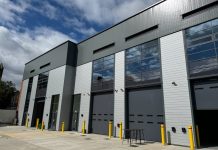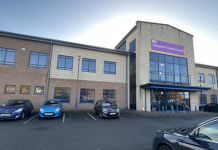According to Savills, take-up of laboratory space in Cambridge was 10 times higher in 2019, jumping from 17,145 sq ft (1,592 sq m) in 2018 to more than 214,100 sq ft (19,890 sq m) last year. This equates to 29% of all transactions over the past 12 months.
Key deals in 2019 included RxCelerate UK occupying 25,000 sq ft (2,322 sq m) at the Babraham Research Campus, which saw 79,000 sq ft (7,339 sq m) of space let in total last year. Whilst Lonza and Microbiotica took 41,325 sq ft (3,839 sq m) and 18,894 sq ft (1,755 sq m) respectively at Chesterford Research Park.
Savills notes that demand for lab-fitted product has skyrocketed as firm’s look to take advantage of ready to occupy space within Cambridge’s world class science and innovation clusters. As a result, Savills figures show that supply of laboratory, office and R&D space fell to just over 6% by the end of Q4 2019, down from more than 8% at the start of the year.
Across the UK the level of capital raised by UK headquartered life science companies (including M&A, IPO and venture capital transactions) hit £27.6 billion in 2019, an 135% increase on 2018. Savills anticipates that this significant growth of activity in the sector will lead to an uptick in real estate requirements from occupiers looking for this kind of space.
Off the back of the success of the life science and pharmaceutical sectors, the Cambridge office market, as a whole, had a very strong year. Overall take-up in the city reached 737,000 sq ft (68,469 sq m) in 2019, 47% above the long term average.
William Clarke, director in the business space team at Savills Cambridge, comments: “Where previously we have seen occupiers take the build-to-suit option when it comes to laboratory space, we are now seeing a surge in requirements for existing fitted product, especially as firms look to up upscale on a reactive basis. Consequently, developers are having to factor this in when commencing new schemes across the city. Cambridge has always had a reputation as a key UK tech and life science innovation hub so it is crucial that we cater for the unique demands of these types of businesses in order to further enhance the reputation of the region.”






















